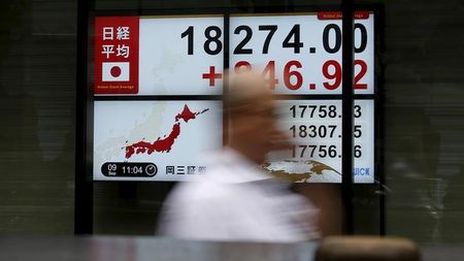Watanabe made the remark a day after the Republican nominee's surprise win in the presidential election roiled global markets.
The yen surged more than 3 percent on Wednesday as Trump swept to victory over heavily favoured rival Hillary Clinton, prompting verbal warnings from Japanese policymakers who are concerned that a strong currency would derail the fragile export-reliant economy.
Markets were calmer on Thursday, with the dollar reversing earlier selling against the safe-haven yen to touch a high of 105.87 yen, its highest since July 27.
"If the yen spikes by 3 yen or more, Japan should not hesitate to intervene" regardless of U.S. concerns about such action, Watanabe told Reuters in an interview, adding that he told this recently to Finance Minister Taro Aso and current top financial diplomat Masatsugu Asakawa.
"If Japan hesitated to intervene out of deference (to Trump), it would not be able to act for the coming four years," said Watanabe, who is now president of the Institute for International Monetary Affairs, a private think tank.
Japan has not intervened in currency markets since Nov. 2011.
Watanabe served as vice finance minister for international affairs for three years to 2007, and has a close network with policymakers in and outside of Japan.
He said Japan-U.S. economic ties won't change much under Trump, shrugging off some concerns about trade friction.
Japan does not export as much to the United States as it used to, and Japanese carmakers are boosting direct investment and creating jobs there, he noted.
For now, Watanabe said the yen is likely to weaken slowly as the U.S. Federal Reserve is expected to go ahead with an interest rate hike in December or January, supporting the dollar.
Turning to the Bank of Japan, Watanabe said as long as the economy grows steadily, he saw no need for the central bank to ease already massive monetary stimulus further barring big shocks to financial markets.
"I don't think further easing would help much to spur flagging consumer prices," Watanabe said, adding that the BOJ should not be fixated on hitting its elusive 2 percent inflation target.
(Reporting by Tetsushi Kajimoto; Editing by Kim Coghill)
By Tetsushi Kajimoto and Yoshifumi Takemoto






















